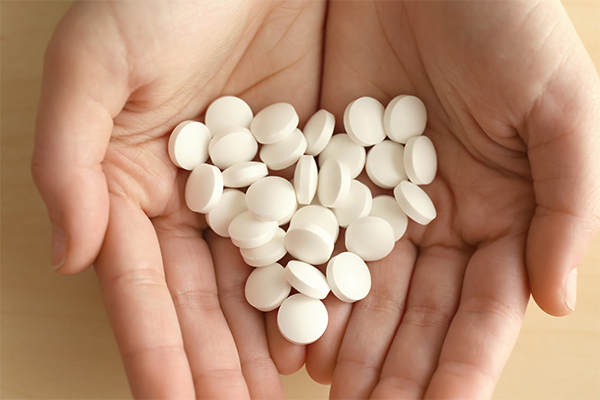In this article:
Antibiotics are a common class of antimicrobial medications that are used to address superficial and internal bacterial infections. Some unhealthy bacteria are naturally present in the human gut, but they are greatly outnumbered by the healthy ones.

Any disturbance in this delicate ecological balance can adversely affect bowel movement and trigger diarrhea. This can occur when a person goes on an antibiotic course.
Antibiotics May Lead to Diarrhea
Antibiotics are essentially chemical substances that keep infection-causing bacteria from multiplying or surviving.
The intake of antibiotics can eliminate a substantial number of the bowel’s healthy bacteria and tilt the balance in favor of the harmful ones. This paves the way for digestive trouble, most notably diarrhea.
Many antibiotics can cause diarrhea, (1) most commonly the class of antibiotics called penicillin and cephalosporins. In most cases, the antibiotic-induced disruption of the healthy gut flora and subsequent diarrhea are short-lived and resolve once you stop the treatment.
However, the more broad spectrum the antibiotics are, the greater the damage will be. Broad spectrum means that the antibiotic can be used against many different kinds of infections. (2)
Therefore, strong or high-dose antibiotics can sometimes end up killing large populations of the good gut bacteria. In such cases, the bad bacteria take over and cause an infection in the colon. This is called a Clostridium difficile infection. This infection is deadly if not treated, more so in people with a weakened immune system. This type of diarrhea needs to be treated with different antibiotics under the close supervision of a doctor.
Remedies for Antibiotic-Caused Diarrhea
The best remedy is prevention. Do not take antibiotics if they are not absolutely needed – do not take them for simple cold or flu-like symptoms. Always check with your primary care physician if antibiotics are needed. However, if diarrhea does occur, the following measures may help:
- Consume probiotic-rich foods, such as kimchi, yogurt, and sauerkraut, if you don’t have a secondary Clostridium infection. (3)
- Include potassium-rich foods such as bananas in your diet.
- Take OTC probiotic supplements upon consulting your doctor.
- Increase your intake of dietary fiber by eating foods such as oats, fruits, and lentils.
- Avoid high-fat items such as meat.
- Some people become temporarily lactose intolerant, in which case they should avoid dairy for 1–2 weeks.
- Do not consume alcohol or caffeine for a couple of weeks.
If the diarrhea does not get better with dietary changes, get checked for infection.
Duration of Antibiotics Course
The course of antibiotics depends on the condition being treated. It can be as short as 3 days for simple bladder infections to as long as 9 months for latent tuberculosis. The duration also depends on what antibiotics are taken. Certain strong antibiotics need a shorter course and others need a longer one.
A simple sinus infection can be treated with a 5-day course of penicillin, whereas most other simple infections are treated with a week-long course.
Tips for Antibiotic Use

Always discuss your regular medications with your doctor before starting antibiotics, given that certain antibiotics can negatively interact with some drugs.
Also, read the instructions, such as whether the antibiotics should be taken with or without food, as this may impact their absorption and hence the effect.
If you are taking probiotics, do not take it at the same time as antibiotics. Antibiotics tend to neutralize the effect of probiotics if they are taken together.
Other Side Effects of Antibiotics
Diarrhea is the most common side effect of antibiotics. However, antibiotics can also cause other side effects, which may persist from a few days to a few months, depending on how strong/broad spectrum the antibiotic is and how long it was taken. (4)
These side effects include:
- Interaction with other medications
- Organ damage
- Change in taste
- Loss of appetite
- Skin rash
- Hypersensitivity to light
- Nausea and vomiting
- Gastrointestinal distress
- Gut flora imbalance, which can lead to many other problems, including weight gain (5)
Excessive antibiotic use can also make the bacteria resistant to antibiotics. This means that the targeted bacteria will change their genetic structure to negate the impact of antibiotics.
Antibiotic resistance is more of a population-level problem. Thus, antibiotics should only be used when they are absolutely necessary.
Final Word
Your gut has millions of bacteria, both good and bad, living in a delicate balance. Medications such as antibiotics can kill good bacteria, altering the composition of your intestinal microflora. This can lead to problems such as diarrhea.
Such antibiotic-caused diarrhea often resolves on its own after the antibiotics course is completed. However, in certain cases, the microflora may be greatly affected, leading to infection, which must be checked by a doctor.
- Was this article helpful?
- YES, THANKS!NOT REALLY


